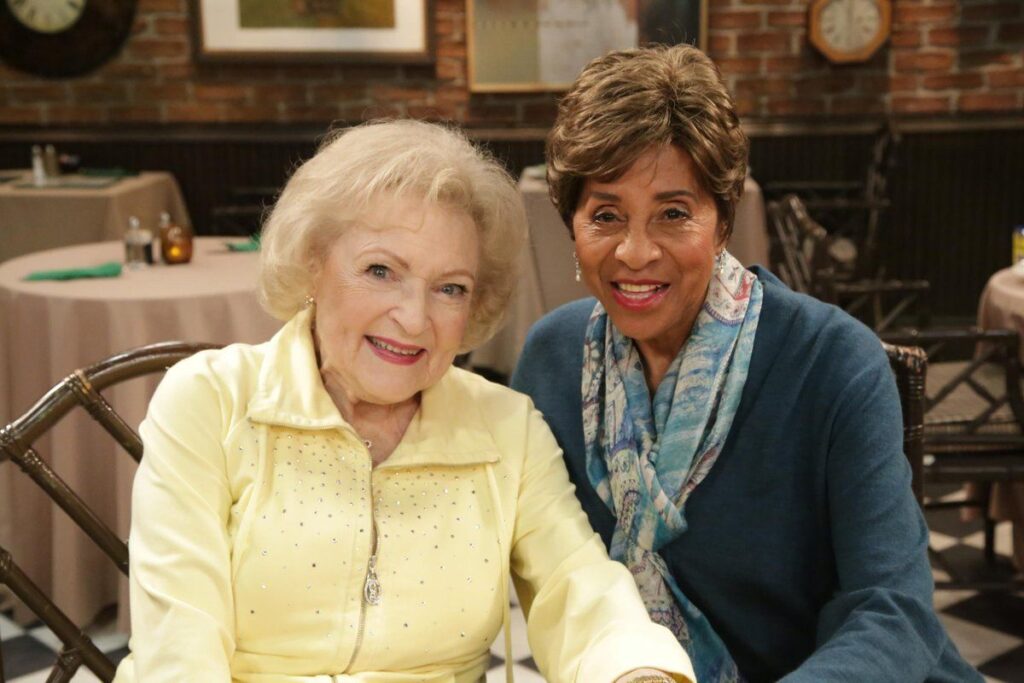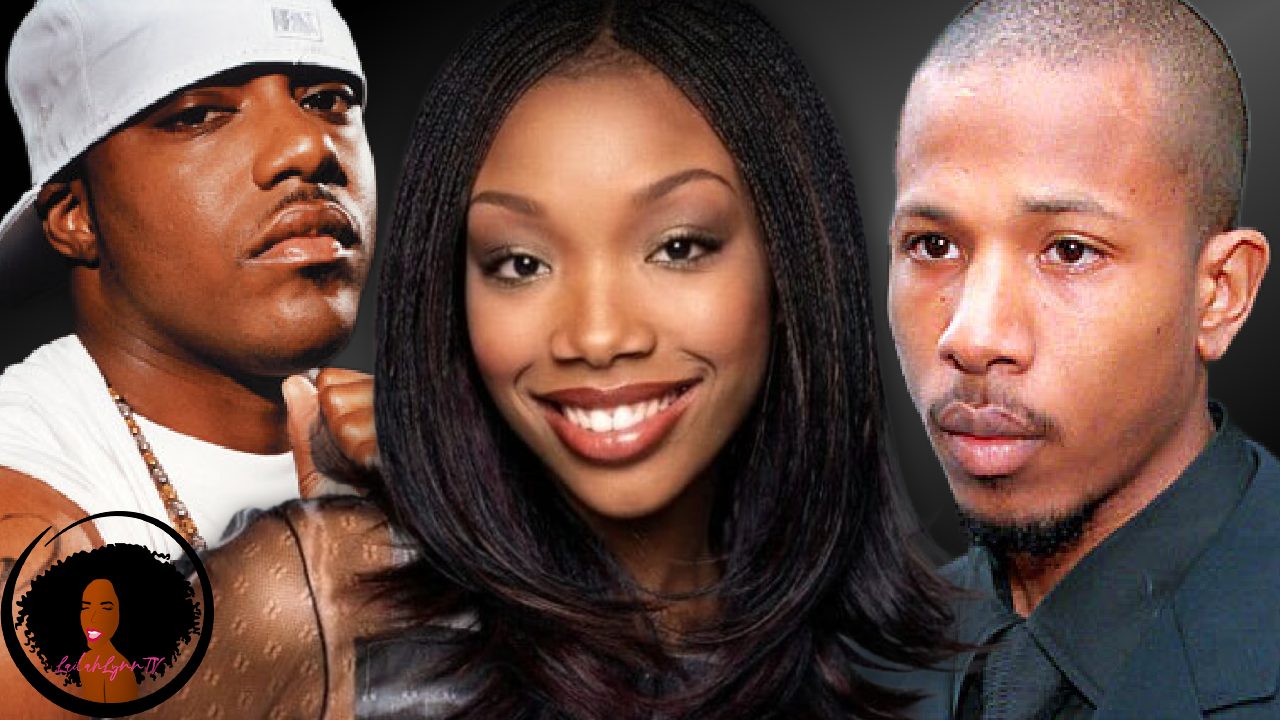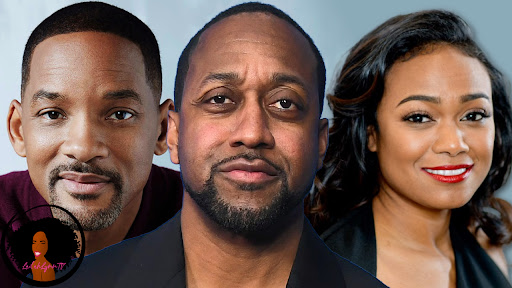The iconic actress Marla Gibbs is currently trending on social media after making a surprise appearance at the 75th Emmy Awards. Marla Gibbs has been an icon in the entertainment industry for over 50 years and she is currently 92 years old. So people are asking, why is Marla Gibbs not getting the Betty White treatment? Why is she not receiving the widespread acclaim that Betty White received in her 90s.
Betty White had already enjoyed a long and successful career in television, but her popularity soared in her 90s and as she approached 100 years old fans couldn’t get enough of her.
But people are asking, why is Marla Gibbs not getting that same treatment. So we’re going to get into that.

Stephanie Holland at theroot.com writes,
After her show-stealing appearance at the 2023 Emmys, it’s time for Hollywood to give the 92-year-old ‘227’ star a run befitting her legendary status.
The star of the 2023 Emmys was actually the one and only Marla Gibbs. As TV royalty, she received an extremely well-deserved extended standing ovation, then went on to proclaim that it was “the wage gap” that kept her working all these years. She jokingly announced that she needed the writers in the room to create more roles for her.
She’s not wrong. We need more Marla Gibbs on TV. She’s worked consistently over the last decade, booking guest roles on “Grey’s Anatomy,” “Days of Our Lives,” “Black-ish” and even returning as Florence in “Live in Front of a Studio Audience: The Jeffersons.” However, it still feels like she’s not getting enough credit for her contributions to film and TV.
In the mid 2000s, the legendary Betty White had a career resurgence that kept her busy until she passed away in 2021. It’s high time that Gibbs gets the same treatment.
Frankly, there should be a line of writers and producers waiting to work with a legend like Marla Gibbs. She’s exceptional in any genre, and it’s clear her comedy chops are still sharp.
Here’s what people are saying on social media about Marla Gibbs:
And let me say this, because I know some people are upset at even hearing Marla Gibbs be compared to Betty White. They say comparison is the theif of joy right?
But I think when people compare Marla Gibbs to Betty White, it’s often with the positive intention of highlighting Marla Gibbs’ contributions and achievements in the entertainment industry. The intention behind these comparisons is usually to bring Marla Gibbs’ accomplishments back into the limelight, and emphasize her importance in the entertainment industry.
So the comparison has a positive intention behind it.

Marla Gibbs herself has responded to comparisons between her and Betty White. She acknowledged the love and support she has received from her fans, emphasizing that their recognition is a major part of her success. And she expressed her admiration for Betty White, but she also pointed out that these comparisons can sometimes shift focus away from the important achievements of each individual. She stressed that while she loves Betty White, she isn’t trying to be her but appreciates the acknowledgment of her own work and impact
The comparisons also serve as a reminder to audiences and the industry of the need to give due recognition to actresses like Marla Gibbs, who have significantly contributed to the cultural landscape, but may not have received the same level of acclaim as some of their peers, like Betty White.

Marla Gibbs’ remarkable journey in the entertainment industry is a testament to her talent and a powerful reminder that success can come at any age. Born Margaret Theresa Bradley on June 14, 1931, in Chicago, Illinois, Gibbs lived a life far from the limelight for many years, working in various roles, including a stint as a United Airlines reservation agent. It wasn’t until after the age of 40 that she experienced her meteoric rise to fame, proving that it’s never too late to follow one’s dreams.
Her breakthrough came with the role of Florence Johnston in the beloved sitcom “The Jeffersons,” which debuted in 1975 when Gibbs was in her mid-40s. Her portrayal of the sassy and quick-witted maid in this show not only earned her critical acclaim but also endeared her to millions of viewers. But even after gaining fame on “The Jeffersons,” she continued to work her day job at United Airlines for two years, not wanting to give up a stable job for an acting role that might be short-lived.

The success of “The Jeffersons” led to Gibbs starring in a spin-off series, “Checking In,” in 1981. Although short-lived, the series further highlighted Gibbs’ talents and versatility as an actress.
After “The Jeffersons,” Gibbs continued her television success with the lead role in the sitcom “227” from 1985 to 1990. In “227,” she played Mary Jenkins, a sharp-tongued, middle-class woman, showcasing her ability to carry a series as the main character. Her performances in both “The Jeffersons” and “227” alongside Jackee Harry, Helen Martin and Alaina Reed Hall were groundbreaking, especially considering the limited representation of African American women in leading roles on television at the time.
Marla Gibbs’ career is also marked by her Emmy Award nominations for her work in “The Jeffersons.” These nominations were a recognition of her significant impact and skill as an actress. Beyond acting, Gibbs explored other creative avenues, including releasing a music album and delving into writing and producing content for television.
Her personal life as a mother of three, including actress Angela Gibbs, and her involvement in charitable endeavors and social causes, added depth to her already rich life story.

Marla Gibbs’ career, marked by her successful entry into the acting world in her 40s, stands as an inspiring narrative of persistence, talent, and the idea that it’s never too late to achieve one’s dreams. Her legacy in the entertainment industry is significant, especially for paving the way for future generations of African American actresses.
Do you feel that Marla Gibbs has received the recognition she deserves for her contributions to television?


